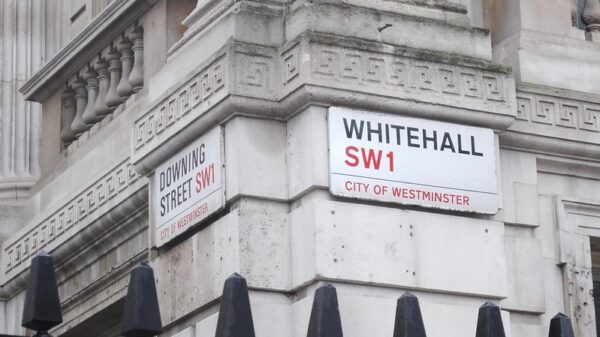The last day people can register to vote for the upcoming UK general election will be 18 June – don’t miss out.
On 4 July the United Kingdom will go to the polls to elect its next government. This year the country faces a series of tough political decisions which will impact all of us at King’s College London (KCL). Issues such as National Service, VAT on private schools, rail nationalisation, the Rwanda Plan and votes at 16 are all on the ballot – with many students at KCL able to have a say during this critical juncture.
What happens during a General Election?
A general election is the method through which the UK elects its members of the House of Commons. For this, the UK uses a first-past-the-post electoral system, which divides the nation into 650 constituencies (one for approximately 70,000 voters). On election day, which has been determined as 4 July, all constituencies carry out their own election to determine their Member of Parliament (MP). Ultimately, if a party manages to accrue a majority of MPs, which would be 326, then they can form a government. If no single party reaches this threshold, this opens up the possibility of a coalition, in which multiple parties pool their MPs to form the required majority in passing legislation.
In the UK, voters must be registered before they can complete their ballot and the deadline for this is at midnight on 18 June. The responsibility for doing this is down to the individual voter. This means that people are not automatically enrolled which can cause confusion. As of 2022, only 60% of 18-19-year-olds were registered to vote. 20-24-year-olds were not far ahead with only 67% registered. When compared to older age brackets such as 45-54, which has a rate of over 90%, this is drastically lower.
Many have argued that voter registration is crucial for younger people to be heard by politicians and for their issues to be addressed. Given their recent campaigning for National Voter Registration Day, Roar News approached the incoming Vice-President of King’s For Change, Inés Llamas Delgado, to discuss the importance of youth participation in politics. She elaborated:
Students represent a vital and often underappreciated part of the electorate, with interests in issues such as education, student debt, or youth employment. By registering and voting, we can ensure that our concerns and needs are taken into account by politicians and legislators.
Inés Llamas Delgado, incoming Vice-President of King’s For Change
How to register to vote:
Registering to vote only takes 5 minutes and it can be done online. For this, all you need is:
- Your National Insurance Number
- Any other valid form of ID (passport, driver’s licence, etc…)
- Your current address details
When you move house you may need to do it again to be registered in your new constituency, even if you have registered to vote in the past.
It is also vital to remember that if you do choose to vote in person, you need to bring a valid form of ID.
What are your rights as an international student?
Many international students may still be able to vote in this year’s upcoming general election and all can be involved in some capacity. All students from an Irish and Commonwealth background are able to vote in UK general elections. A House of Commons Report on who can vote in general elections explains that these extended voting rights “are a result of the historical links between the UK and Ireland and between the UK and the countries of the UK’s former empire”, with the roots of this dating back to 1914. Despite ceasing to be part of the commonwealth in 1997, those from Hong Kong can register to vote as well.
Those from the European Union are able to vote in UK local elections, providing they are a resident. These include electing: a mayor, a police and crime commission and the local council. However, they are not able to vote in general elections.
Additionally those from outside the commonwealth will not be able to vote. However, all can still participate in community organising and action, contact elected representatives and freely protest and campaign.
Finally, as of the Elections Act 2022, British citizens who have lived abroad for over 15 years will be able to vote in this general election, enfranchising approximately two million people.
If you’re unsure of what your voting rights are, you can check them here.
What if you’re not around on election day?
Voting does not have to be done in person. Therefore, if you’re not at home or jet-setting abroad there are still ways for you to have your say.
Postal voting is when you cast your ballot before election day and send it off to be counted. This can be done from the comfort of your own home. Again, it is quick and easy to apply for and it can be done online. It should be noted the deadline for a postal vote is 19 June at 5 PM and you must be registered to vote for it to be successful.
Proxy voting is another way to have you say if you aren’t around on election day. This method of voting grants permission for another person to vote on your behalf.
Who can you vote for?
The UK has a range of political parties that represent ideas across the political spectrum. It is easy to see this as a two-horse race between the Conservative Party and the Labour Party, but there are more options than just those two. From the smaller parties such as the centrist Liberal Democrats, the left-wing, environmentalist Green Party and the right-wing populist Reform UK to a set of independents such as the recent KCL graduate Leanne Mohammad running in Ilford North. To see the candidates for your constituency, use this tool by WhoCanIVoteFor.
Delgado also commented on the parties’ manifestos:
Analysing the electoral manifestos, we can see that there are sections dedicated to youth policies. For example, the Liberal Democrats have opted to reduce the voting age to 16 so that more young people can vote; the Green Party has committed to scrapping British university tuition fees; the Conservatives propose introducing a National Service for all 18-year-olds, and the Labour Party has committed to providing training, an apprenticeship or help to find work for all young people from 18 to 21 years old, among other policies.
This shows that there are different proposals for youth. We just have to find out which ones seem best to us and vote accordingly, so that in the future there are more proposals for youth people. So, take your say and vote today!
Inés Llamas Delgado, Incoming Vice-President of King’s For Change
On 13 June, 328,773 people registered to vote – you can be next!


















